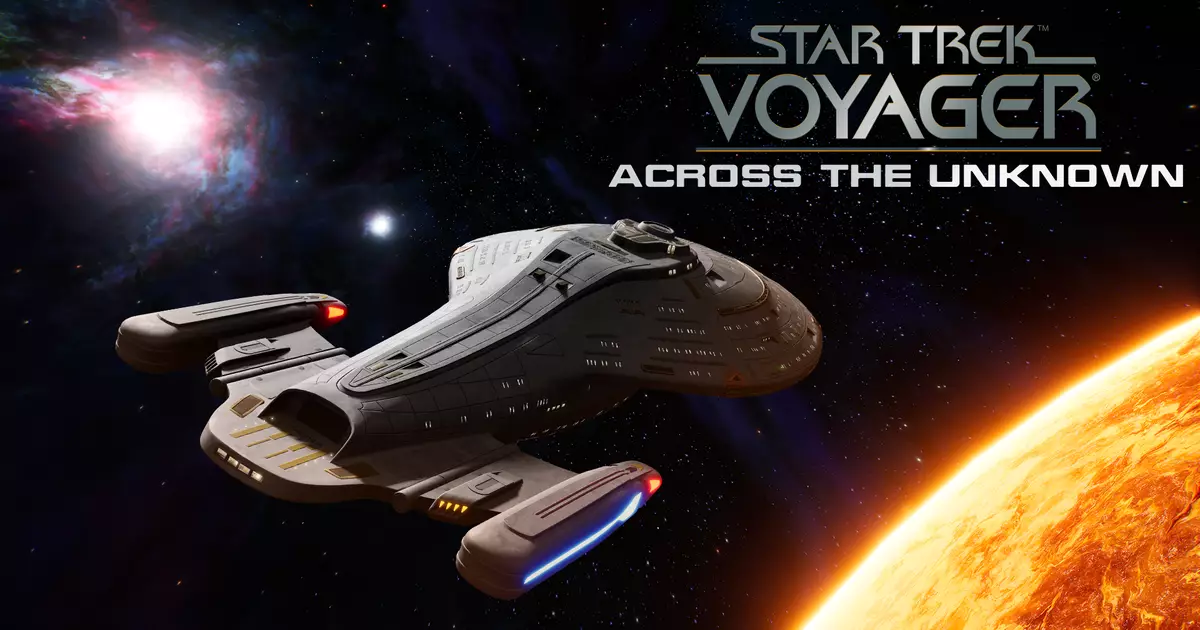Star Trek: Voyager has always held a special place in the hearts of science fiction enthusiasts, celebrated for its daring explorations of morality, resilience, and frontier spirit. The recent announcement of *Star Trek: Voyager – Across the Unknown* promises to breathe fresh life into this iconic universe by transforming it into a story-driven survival strategy game. This adaptation ventures beyond mere nostalgia, aiming to deepen the narrative complexity and interactive experience for fans steeped in the lore, as well as newcomers eager to chart their course in the Delta Quadrant.
This game is not simply another tactical or resource management title; it aims to immerse players into the crew’s dynamics and moral dilemmas, offering a uniquely personalized journey through uncharted space. While some gamers may be skeptical about the incorporation of roguelike mechanics—often associated with repetitive grind and frustration—the developers’ emphasis on meaningful choices underscores a desire to elevate gameplay beyond rote repetition, emphasizing narrative weight and consequence.
Strategic Exploration Meets Moral Complexity
*Across the Unknown* positions players as the captain of the USS Voyager, navigating the perilous waters of the Delta Quadrant. The game’s core comprises exploration, resource and crew management, and decision-making that influences both immediate outcomes and the long-term fate of the ship. Unlike traditional Star Trek narratives, this game invites “what-if” scenarios—potentially rewriting pivotal moments or imagining alternate realities. For instance, imagining Janeway as Borg Queen or the Doctor stepping into the captain’s chair sparks curiosity about the creative liberties the game will explore.
The strategic layer is multilayered: players can choose a cautious approach or opt to push the envelope with bold diplomacy or aggressive tactics. The inclusion of research on long-shunned technologies adds an intriguing element, challenging players to weigh risks against rewards. This moral gray area enhances the game’s depth, allowing for an experience that is as philosophical as it is tactical. However, some may question whether roguelike randomness diminishes the narrative weight, or if it heightens replayability by offering unpredictable scenarios—an attribute that could either invigorate or frustrate players.
Ship and Crew Management: A Delicate Balancing Act
A prominent feature is the ship’s interior management, reminiscent of other XCOM-styled games but with a Star Trek flair. Players build and upgrade facilities within Voyager, tailoring the ship to suit their strategic preferences, whether that’s fostering scientific breakthroughs or bolstering defenses. However, I am less convinced about the simplified, top-down movement mechanics within solar systems—that aspect feels disconnected from the vastness and mystery of space, reducing the Delta Quadrant to a somewhat mundane map rather than a sprawling and enigmatic expanse.
The away missions, however, promise a compelling experience. Selecting a team of familiar characters and assembling a complement of redshirts offers a delightful degree of personalization. The game emphasizes tactical coordination among team members’ unique skills, creating a mini-sim within a simulation. The player’s choices during away missions—whether minimizing risks or rushing into danger—underscore the potential for narrative divergence, fostering a deeper engagement with the characters and their stories.
Ship-to-ship combat reinforces the game’s strategic core. Assigning crews to specific stations and targeting individual systems represents a classic tactical challenge, yet the outcome hinges on the player’s leadership and foresight. The question remains whether this combat system can capture the grandeur and tension of space battles portrayed in the series or if it reduces combat to a mechanical necessity that distracts from the narrative.
The Nostalgia-Driven Catch and Critical Reflection
While the announcement is laden with fan service—characters like Harry Kim eager for orders, iconic bridge displays, and nods to beloved moments—the game’s success depends on how well it balances these nostalgic elements with innovative gameplay. The writer’s tone is tinged with a biting skepticism about the roguelike features—an assertion that these mechanics often breed repetition, which could undermine the storytelling aspect so vital to Voyager’s legacy.
Furthermore, the developer’s background—just off of Asterix adaptations—raises questions about their capacity to translate the intricacies of space simulation convincingly. Yet, one cannot deny the appeal of finally seeing Voyager’s crew reimagined within a strategic framework, offering fans a chance to not just revisit old episodes, but to actively reshape the universe in unforeseen ways.
In the end, *Star Trek: Voyager – Across the Unknown* stands at a fascinating crossroads: a homage tinged with innovative ambition, promising to expand the franchise’s horizons while inviting a critical eye on whether these new mechanics serve the narrative or detract from it. As it waits in the wings, only time will tell if it becomes a beloved reimagining or just another passing tribute—yet one thing is certain: Voyager’s crew deserves nothing less than a game that boldly explores new frontiers in storytelling and strategy.

